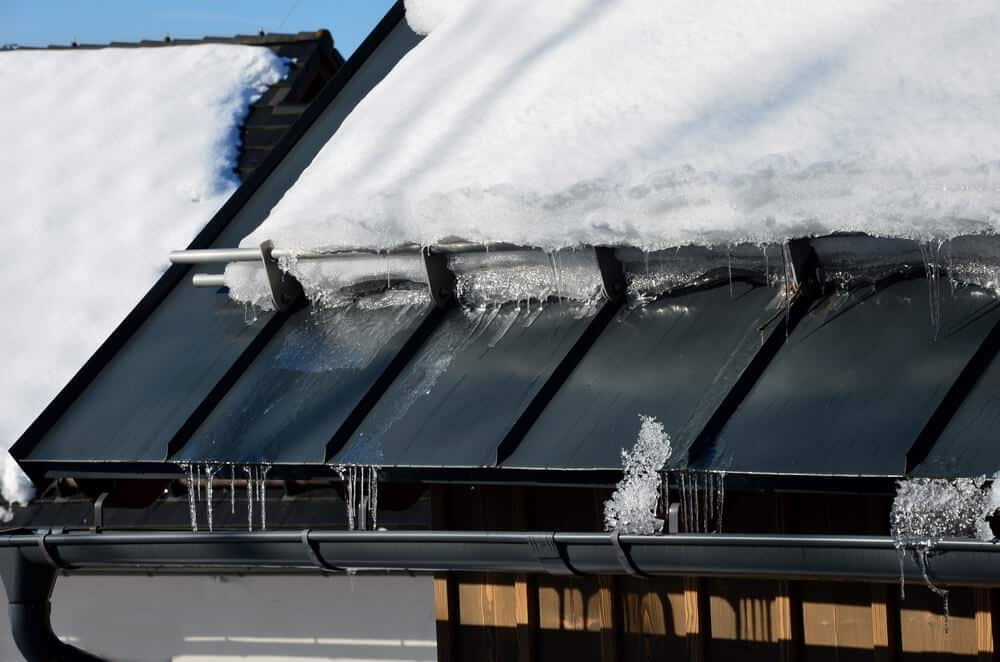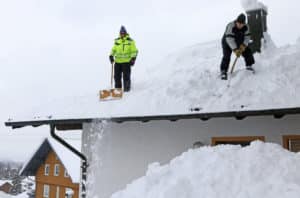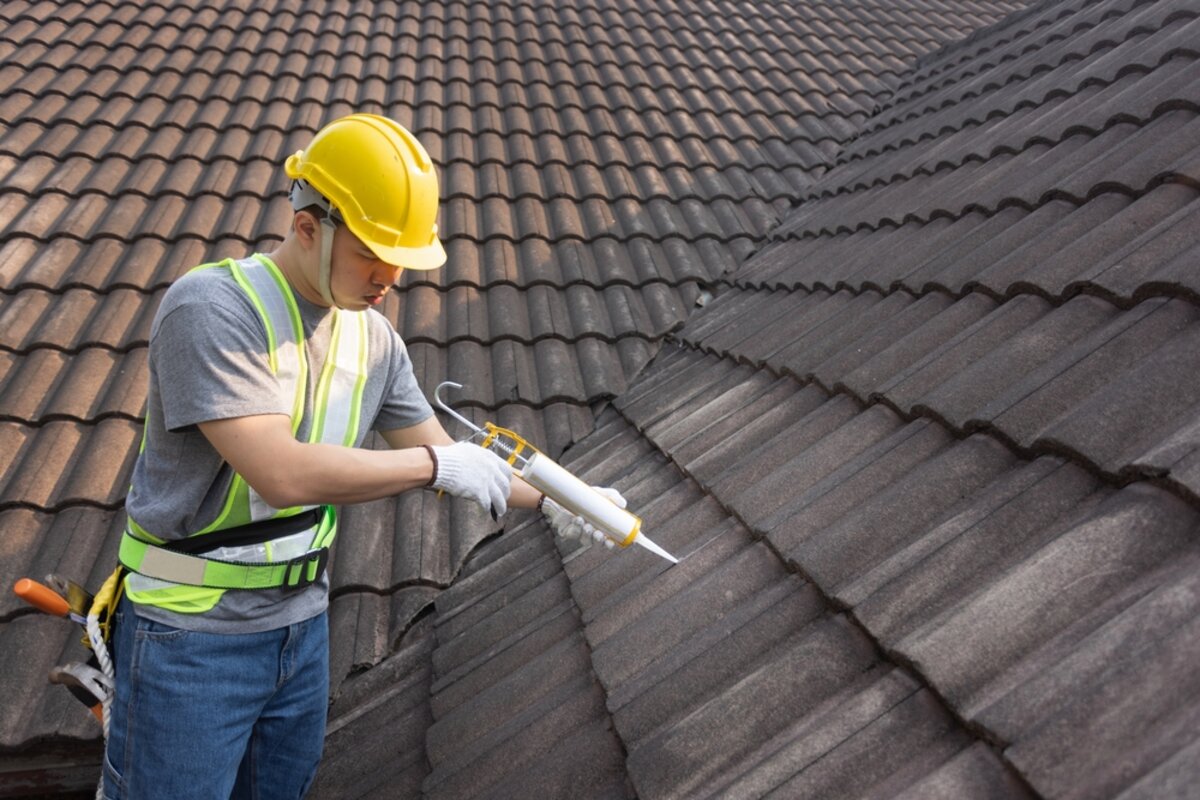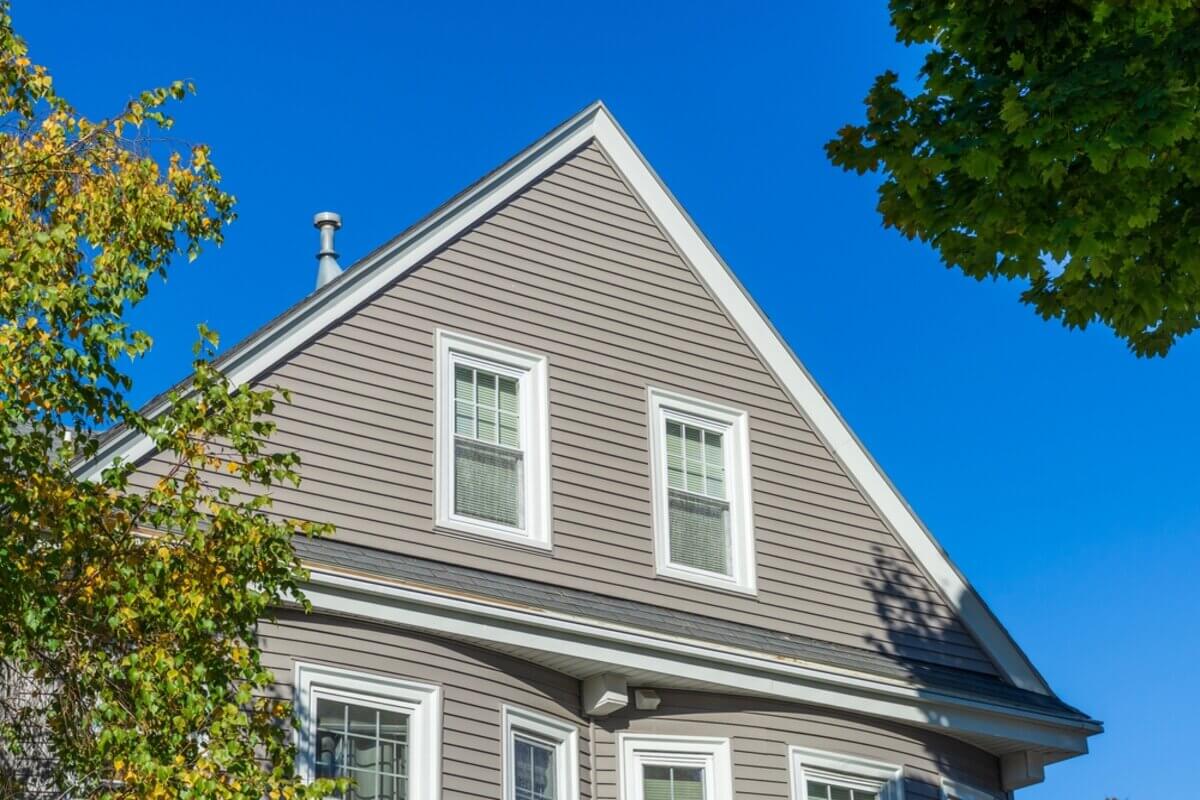Minnesota homeowners are no strangers to significant winter weather. In this chilly state, temperatures can begin to drop as early as mid-fall, and the winters bring below-freezing weather accompanied by snow, sleet, and hail.
While bundling up is one thing that you can do to prepare yourself for winter, another step you can take as a homeowner is preparing the roof for winter and winterizing your roof.
What do winterized roofs look like, and why should you do it? Keep reading for more information about how to get your home ready for winter as you winterize your roof.
What Problems Can Winter Weather Cause to Your Roof?
The purpose of a roof is to shelter you and your family from outside elements, but even your roof needs a little help at times, such as winterizing your roof, especially if it’s exposed to severe winter weather every year. Let’s take a look at some common winter weather problems your roof might experience.
Leaks
Winter weather can cause your roof to leak. Other weather, like sunshine and rain, isn’t as hard on your roof as heavier threats like wind gusts, heavy snow, ice, and hail. Storm damage can beat up on your roof, that is why it is important to routine maintenance checks on your roof to look for any leaks.
Hail Damage
Snow and freezing weather are common in the winter, but many of us forget to consider hail. When the conditions are right, hail storms can produce large chunks of ice that pound on the roofs of Minnesota homes. This can damage shingles, gutters, and other roofing materials in the winter.
Wind Damage
Some winter storms come with very robust gusts of winds, which can cause significant damage to your roof. If your roof already has loose shingles, a severe winter storm can finish the job and tear them off. Losing shingles can swiftly lead to other problems and repairs, so be sure to repair any loose roof shingles and prepare your roof for winter by preparing roof for winter and winterizing your roof.
How Can Minnesota Homeowners Winterize Their Roofs for Winter?
Winterizing your roof can sound like throwing a big, fluffy blanket over it to keep it warm. However, the process is much more practical and can save you a lot of money with just a few careful measures. Here are some winter roofing tips to help you prepare for the cold weather:
Inspect Your Roof Before Winter
Fall is the perfect time for a good, thorough roof inspection. According to the National Roof Certification and Inspection Association (NRCIA), every homeowner should have a roof inspection done annually.
For Minnesota residents, fall is the ideal time to have this inspection done so that they can catch any potential issues before the harsh winter season begins and when you winterize your roof. Not only can winter weather cause more problems, but repairs are harder to make in these conditions.
You can inspect your roof yourself, paying particular attention to:
- Shingles
- Gutters
- Chimneys
- Structure
It may also be more beneficial to have a professional inspector come out and give you some more winter roofing tips before winterizing your roof.
Clean Out the Gutters
Before you winterize your roof and the winter hits and freezing conditions impact your area, it’s a good idea to clean out your gutters. Doing so in the fall is common among homeowners because it helps in preparing the roof for winter.
Clogged gutters cause rain and melting ice to overflow, which can lead to consequential water damage along the edges of your roof. Sitting water can also freeze and expand in the winter, which can damage your gutters, too.
Take the time to clean out all the fall leaves and debris from your gutters before the freezing temperatures set in. It can save you time and money down the road.
Inspect the Attic
When it comes to winterizing your roof, the interior is just as important as the exterior. A complete roof inspection includes taking a look at the inside of your roof, which can mean going into the attic or the ceiling of your home.
An inspection of your attic before you winterize your roof can sometimes show signs of damage that aren’t visible from the outside. For example, evidence of a leak in your roof can show up through internal damage like water stains, rotted wood, and dripping moisture.
Before winter comes around, make sure you do a complete roof inspection and include a peek into your attic or ceiling in order to prepare your roof for winter and winterize your roof.
Trim Tree Branches
Another winter roofing tip for homeowners is to trim overgrown trees. Tree branches can be a roof’s worst nightmare at any time of the year, but especially during a harsh winter. Heavy snow, hail, and strong winds can cause even large, healthy limbs to snap and fall, crashing right into your roof and causing urgent damage.
A great way to prepare your roof for winter and winterize your roof is to trim back any tree branches that hang over your house. This precaution can help you avoid damage if any branches fall. It’s much better to clear a branch from your yard than it is to suffer the destruction of your roof.
Consider Heat Cables
Heat cables aren’t necessary for winterizing your roof, but they can be extremely helpful in states like Minnesota that experience a lot of snow and freezing rain.
These cables line your roof and radiate heat, which helps melt snow and ice that accumulate on your house. This tool is especially helpful for parts of your roof that don’t get a lot of sunlight. By melting the snow and ice quicker, the cables remove the weight much faster, preventing leaks and preparing the roof for winter.
However, heat cables can be dangerous if not used properly, so consider having a professional install them and explain how to use them to you, if you want to use this method to winterize your roof.
Winterize Your Roof Today
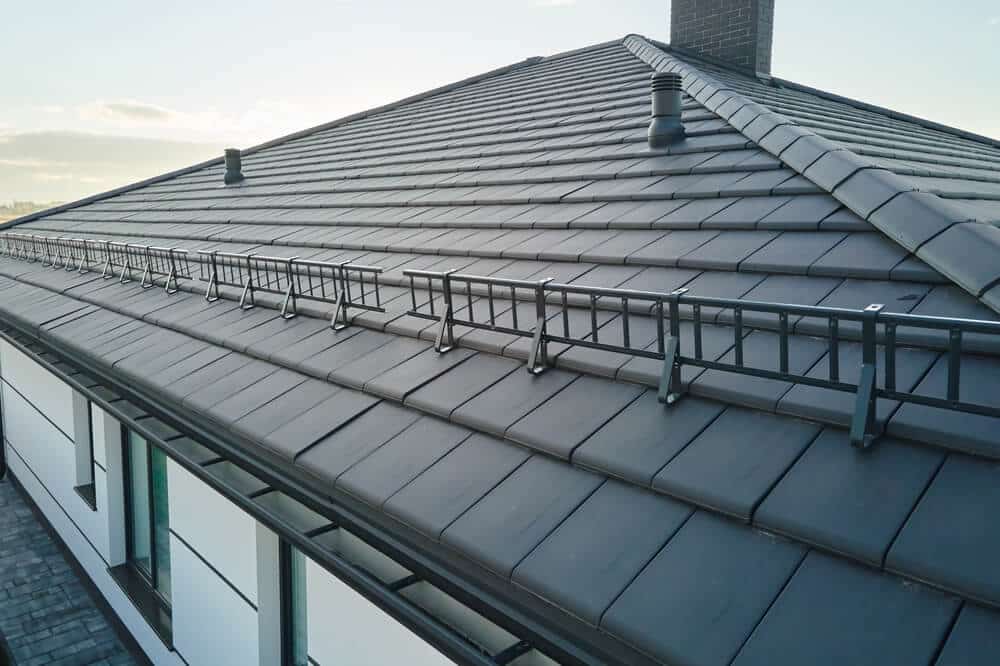
Your roof will experience all kinds of weather, from sunshine and rain to freezing conditions and heavy snow. Before the snowy season rolls around, it’s vital to winterize your roof and prepare it for things like snow, ice, and sleet. One of the best ways to do this is to get a professional roof inspection and follow some of the winter roofing tips above.
At Perfect Exteriors, we have the tools, professionals, and experience it takes to best care for winterizing your roof and preparing your roof for winter. Contact us today to ask about our free roofing inspections and get started on any repairs you might need in the fall.

